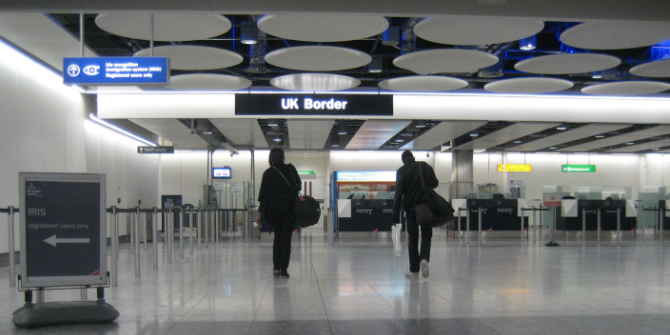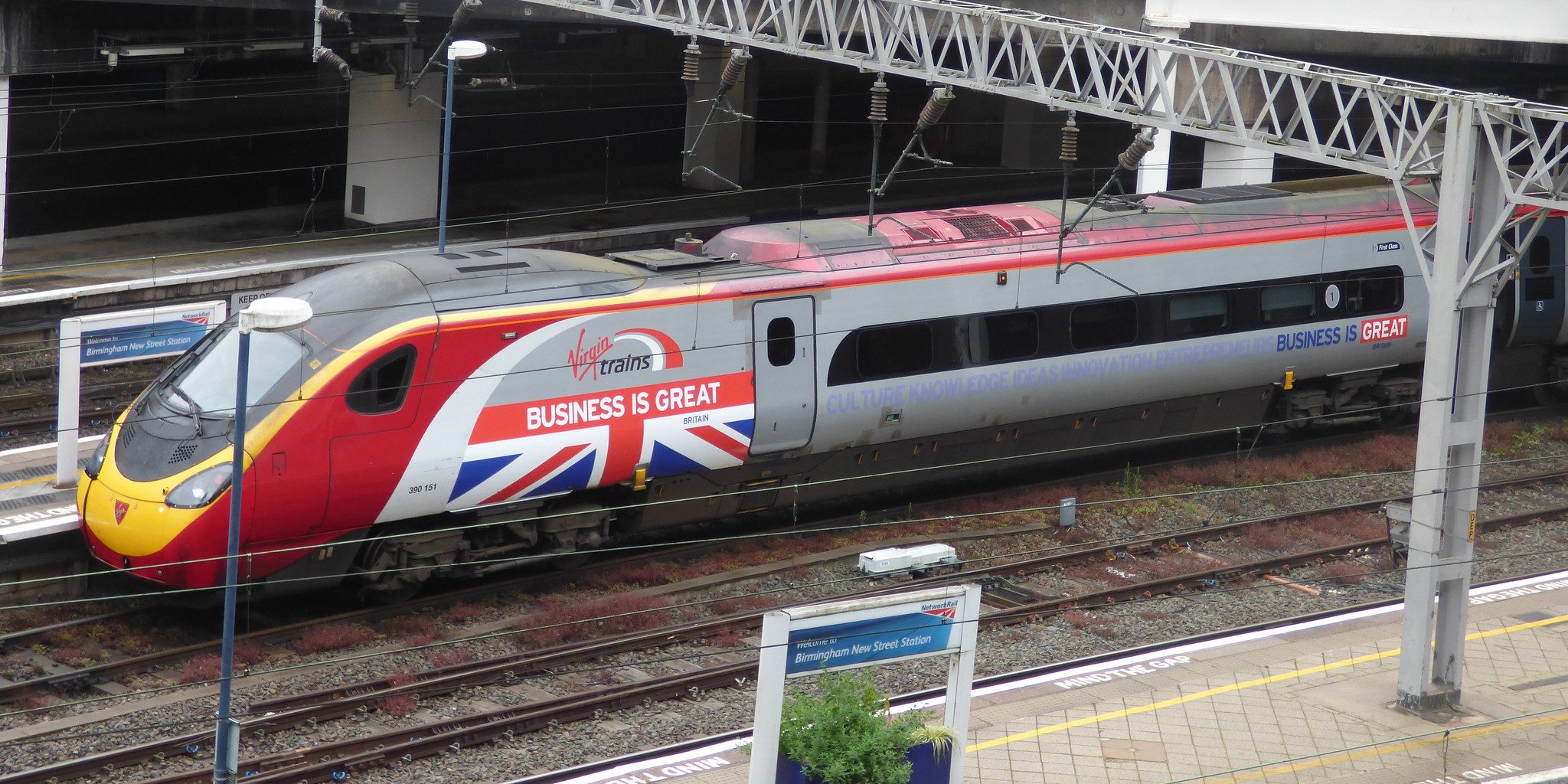 To hold the BBC to account on its coverage of the Leave and Remain campaigns, writes Oliver Daddow, we need to properly understand its Referendum Guidelines and the challenges of ensuring ‘impartiality’. Britons’ lack of knowledge about the workings of the EU and the fact that some of what it does goes unreported by the media make that all the more difficult.
To hold the BBC to account on its coverage of the Leave and Remain campaigns, writes Oliver Daddow, we need to properly understand its Referendum Guidelines and the challenges of ensuring ‘impartiality’. Britons’ lack of knowledge about the workings of the EU and the fact that some of what it does goes unreported by the media make that all the more difficult.
Perceived or real BBC bias is always a hot topic for consumers of the nation’s news. Under its Royal Charter and Agreement the BBC is required to be an ‘impartial purveyor of news and programming’ and to deliver ‘impartial news’. Now that David Cameron has announced that the British people will get a vote on whether or not Britain should remain inside the European Union, fresh scrutiny will inevitably fall on how the BBC handles its coverage of what for the public is, variously, a confusing, controversial and emotional issue. This article explains how the BBC is adapting its editorial guidelines to cater for its coverage of the EU referendum, and reflects on the challenge of achieving impartiality and the vaunted ‘balance’ in a national debate characterised by a very wide spectrum of opinion.
What are the BBC guidelines?
The BBC’s 2016 EU Referendum Guidelines were devised following a public consultation and are intended to ensure impartiality of its broadcasts during what will be an unusually intense period of scrutiny. They will come into force at the official launch of the referendum campaign via parliamentary legislation, and this date has yet to be determined. However, it is plain for all to see that campaigning has already begun, necessitating careful thought by the BBC about how to cover developments in the ‘phoney war’. Hence, the Referendum Guidelines are already operational in all but name.
A key aim of these guidelines is to ‘deliver to audiences impartial and independent reporting of the campaign, providing them with fair coverage and rigorous scrutiny of the policies and campaigns of all relevant parties and campaign groups’. The Referendum Guidelines work synergistically alongside the BBC’s wider Editorial Guidelines. Of particular relevance are those pertaining to ‘Impartiality’ and ‘Politics, Public Policy and Polls’, which includes the handling of set piece political broadcasts. The guidelines stipulate that over an appropriate timeframe the BBC must give ‘due weight and prominence to all the main strands of argument and to all the main parties. Although the government of the day will often be the primary source of news, the voices and opinions of other parties must also be routinely aired and challenged’.
So much for the stated principle, but what about the practice, which will be put to the test in the heat of an impassioned battle for the future of Britain? The amalgamation of the campaign groups on each side of the EU referendum debate into two camps – Brexit and Bremain – should in theory have simplified things. Impartiality in this context would mean the ‘seesaw’ approach of giving equal airtime to the views of each camp in a simple accounting exercise, along with the same length and time slots for their political broadcasts. In this interpretation impartiality means balance of opinion measured in terms of time dedicated to the two poles.

Filling the knowledge gap
This interpretation of impartiality has an elegant simplicity to it. However, it was recognised by the BBC almost a decade ago that the ‘seesaw’ approach falls short of generating true impartiality in an era when so many formal parties and groupings exist to promote the ‘for’ and ‘against’ of all political matters. This is especially true for the feverish debate about the merits of national membership in a complex, multidimensional grouping such as the EU. Huge diversity of opinion necessitates instead a ‘wagon wheel’ approach, encouraging the airing of a fuller ‘breadth of view’ and ‘extra perspectives’, which perhaps might not be catered well for elsewhere in the national media. Contrary to the presentation of ‘two sides of the argument’, therefore, the wagon wheel model assumes the need to broadcast a true mulitiplicity of opinions.
In the EU referendum debate, as Mike Berry has pointed out, the BBC should be able to perform a vital function in this respect, for at least two reasons. First of all, it has the resources and time across its various platforms (television, radio and online) to act as a credible source of information about EU governance structures, policies and decision-making practices. Members of the UK national public often admit to lacking basic facts about the history and development of the EU. They further indicate that they want more such knowledge about the workings of the EU and about Britain’s role within the organisation.
It is beyond the scope of this piece to diagnose the causes of this information gap, but the blame appears to lie with a sorry combination of politicians who have done little to explain the EU to voters over a prolonged period, a national history curriculum dominated by Britain’s martial history and which has been too heavily focussed on the Hitler/Stalin approach to understanding recent European history, and other organs of the media itself (newspapers in particular), which prefer to spread comedic myths about the EU instead of investigating the ‘real’ or substantive matters that publics care about. Throwing out heat about the EU has, in short, often taken the place of casting light on its activities and global role (whether positive or negative).
The problem of representation
Second, and with this in mind, there is a significant percentage of voters who say that as yet they are undecided how to vote in the referendum – anywhere between 8% and 18% at a recent estimate. This is certainly enough to swing a close poll either way. On top of this, huge segments of the voting populace are under-represented at the top of the national campaign groupings, and this naturally extends to poor coverage of their interests in terms of the issues discussed. Gender imbalance in the campaigning and media coverage is one very good example in this respect, with twice as many women as men declaring that they are undecided how to vote. This is also a generational problem, as new research has found that only ten per cent of those aged 18-24 feel well informed about the referendum.
There are many interesting angles to take on EU policies and the costs and benefits to Britain, which could mobilise female (and of course male) voters, such as the question of the gender pay gap and employment rights. Leaving social justice matters aside, there is Britain’s leading role in pushing EU action on climate change (on which the UK Green Party is an authoritative but relatively rarely heard voice), Britain’s role in pushing good practice in Corporate Social Responsibility and its role in Common Defence and Security initiatives, for example in the EU Naval Force’s Operation Atalanta combatting piracy off the coast of Somalia.
These are just a few examples of areas of EU activity that are likely to get limited or no coverage in the referendum debate. But they are not niche debates that affect just a few people or some segments of the population. They affect us all because they speak to a core concern that underpins all the debates taking place in this process: what kind of capacities does Britain possess to secure its interests on the world stage, and does Britain ‘need’ the EU to help it play out this nationally-agreed role?
In the interests of a democratic process and a legitimate referendum result that has buy-in from all sides, the public needs to go to the polls having had the chance to hear from all sides on all issues. Clearly, the BBC is not the only media outlet where the broader debates can or should occur, but it is certainly entering a tricky period when its coverage of one of the most vexed national issues of our time will put it under the microscope as never before.
This post represents the views of the author and not those of the BrexitVote blog, nor the LSE. It first appeared on Open Democracy under a Creative Commons Attribution-NonCommercial 4.0 International licence.
Oliver Daddow is Senior Lecturer in Politics and International Relations at Nottingham Trent University.






